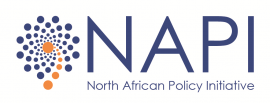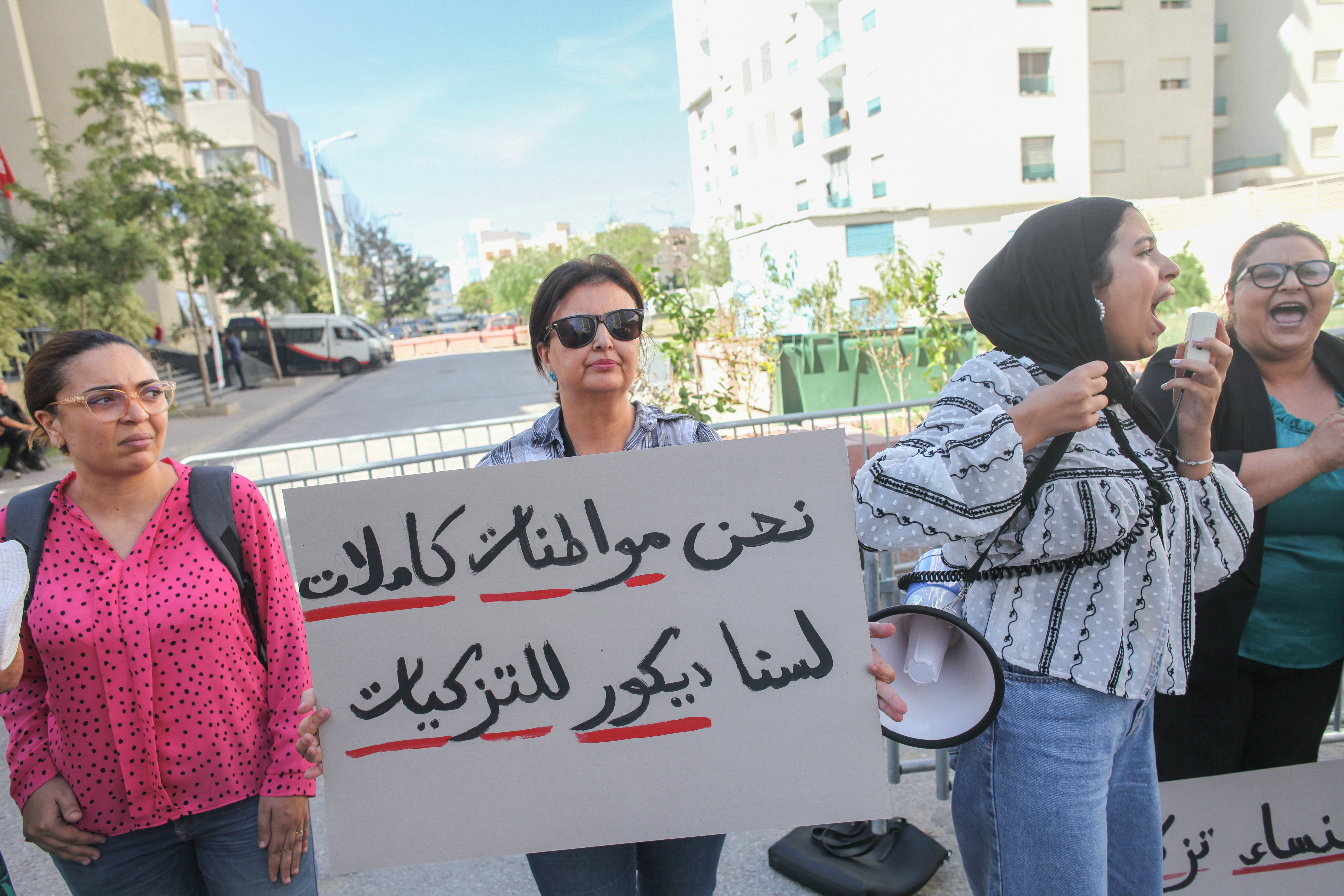Tunisia is often cited as a leader among Arab states for advancing women’s rights and gender equality. While Tunisian women have long been involved in the country’s social, cultural, and economic life, the 2011 revolution spurred young women to also take on civic and political activism and help pave the way for a democratic transition. They have been successful in advancing the legislative agenda to advance women’s rights, proving their capacity to push for change and to challenge existing norms.
Yet the trend toward gender equality remains unsteady and the gains fragile. Women still suffer from geographic and social disparities, low integration in economic life — despite making up a high proportion of university graduates — decreasing political representation and opportunities for active participation, the lack of a national and local strategy for women’s empowerment, and as well as alarming violence in public and private spheres. Please join MEI’s panel of experts as they discuss continued challenges to gender equality in Tunisia as well as explore policy solutions to ensure meaningful and more lasting integration of Tunisian women into all spheres of public life.
Speakers
Fadoua El Ouni
Ms. Fadoua El Ouni currently works with the Carter Center. She has a background in law and experience in elections, with expertise in election observation and advocacy. She has delivered extensive training sessions on the electoral legal framework, as well as analysis papers and general advice on electoral law-related matters. Previously, she worked for Democracy Reporting International and the National Elections Commission.
Kenza Ben Azouz
Kenza Ben Azouz is a feminist researcher trained in anthropology. She has worked with various humanitarian and human rights organizations, including the OHCHR, Mercy Corps, Human Rights Watch, the OECD, and Tufts University, on issues of male violence, discrimination against women, racism, migration, and human trafficking, across the Mediterranean, West Africa, and the Mashreq. She is interested in applying intersectional feminist analyses to development issues, critical race theory, and decolonization approaches.
Fadwa Bouguerra
Fadwa Bouguerra specializes in the development and implementation of both gender equality and equity to provide sustainable social, political, and economic development in the MENA region. In her capacity as gender specialist, she worked on several projects partnered with GIZ, IFES, MITOS, HIVOS, KAS, and other national and international assistance programs to empower women and reinforce their integration and contribution into decision making. She closely worked on young female participation in politics and women’s contribution to economic growth. Ms. Bouguerra has conducted field research on GBV and its impact on female representation in society, politics, and economy. Her research and academic endeavors focus on GBV in both private and public sectors.
Intissar Fakir, moderator
Intissar Fakir is a senior fellow and director of MEI’s North Africa and Sahel program. She is an expert on North Africa, the Sahel, and key regional thematic issues including governance, social change, migration, and security. She has written extensively on North Africa’s evolving politics including Islamist electoral politics in post-2011 Morocco and Tunisia, the Western Sahara issue, foreign policy priorities in Morocco and the broader region, and the impact of COVID-19 on regional political stability. Her research has also included political transitions, mobilization trends, energy, and social change in Morocco, Mauritania, Algeria, and Tunisia.
In partnership with

Photo by Chedly Ben Ibrahim/NurPhoto via Getty Images












